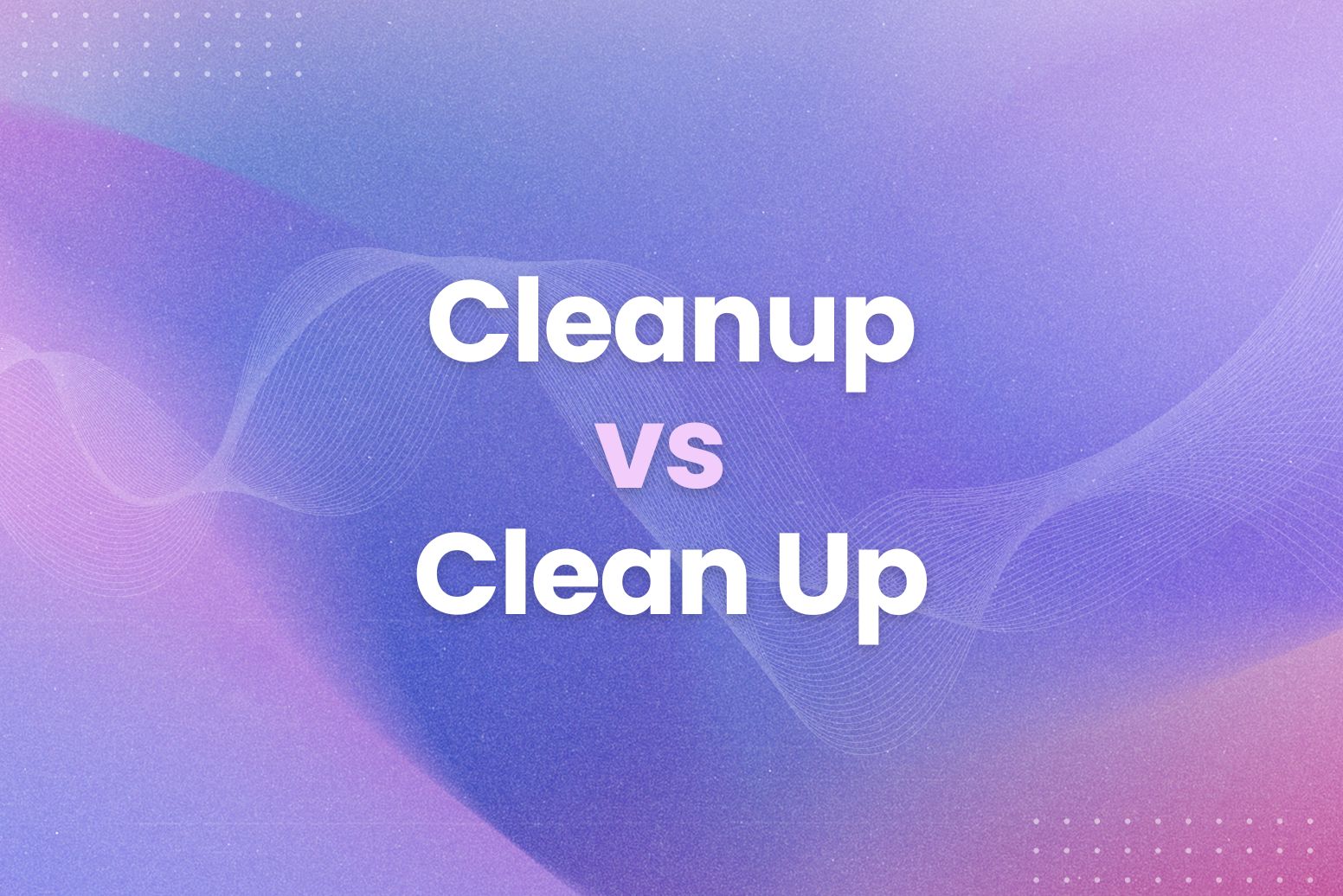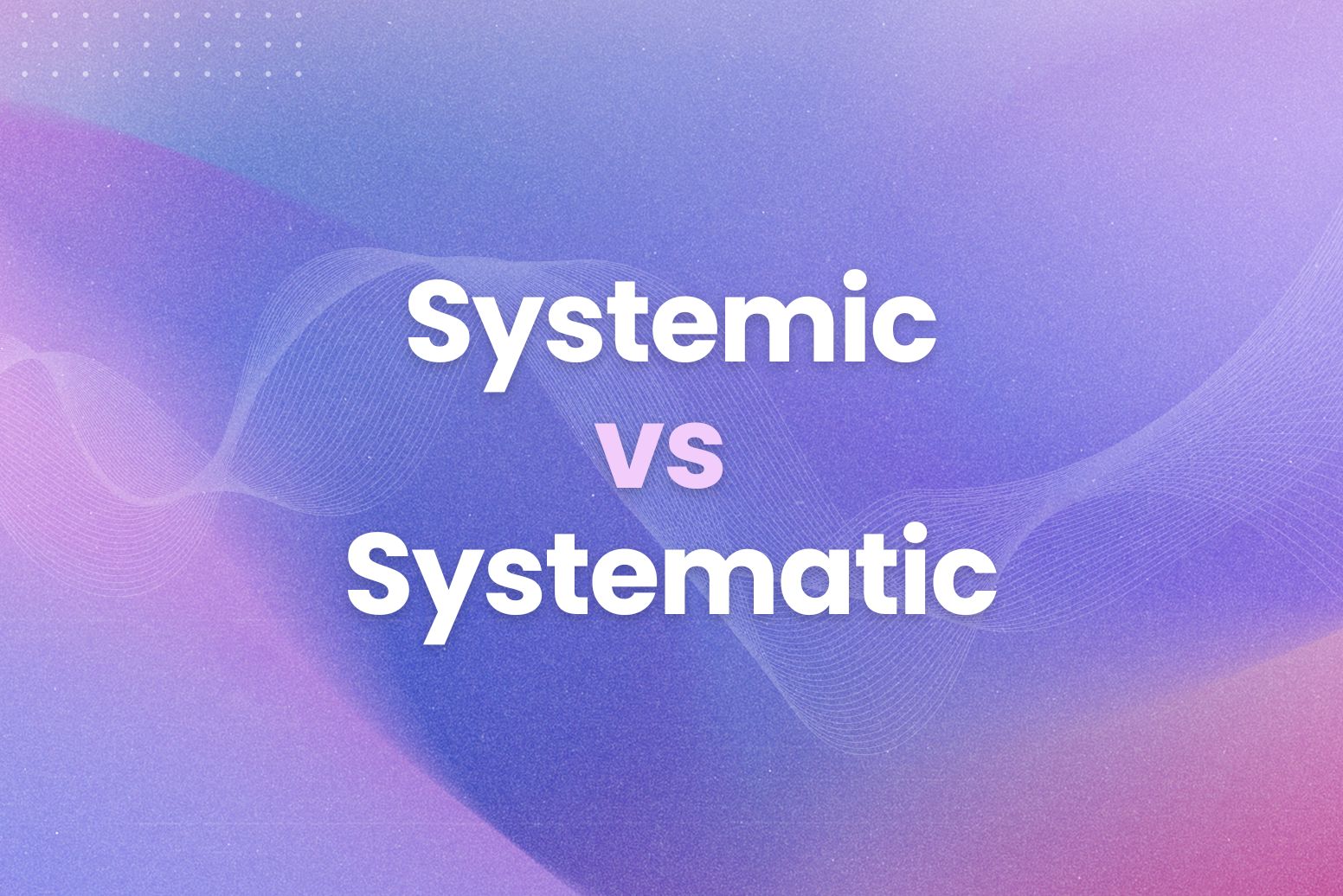We’ve all been there. Staring at the screen, fingers hovering over the keyboard, wondering: Is it “cleanup” or “clean up”? It’s a tiny difference, but in the world of writing, even small slip-ups can have a big impact.
In this guide, we’ll clear up the confusion around cleanup or clean up situation once and for all.
Here’s what we’ll cover:
- Firstly, the simple grammar rule that explains it all.
- Secondly, common mistakes (and how to avoid them).
- Then, practical examples to solidify your understanding.
- Lastly, a handy tip to help you remember the difference.
By the end, you’ll be using “cleanup” and “clean up” like a pro.
The Simple Grammar Rule That Explains It All
The difference between “cleanup” and “clean up” boils down to this: parts of speech. “Cleanup” is a noun, while “clean up” is a verb phrase. In other words, “cleanup” refers to the act of cleaning. On the other hand, “clean up” describes the process of cleaning.
For example:
- “The cleanup after the party took hours.” (Noun)
- “We need to clean up this mess.” (Verb)
See? It’s all about how you’re using the word in a sentence.
Here’s a helpful trick: If you can replace the word with “cleaning,” use “cleanup.” If you’re describing an action, use “clean up.”
For instance:
- “The cleanup (cleaning) was exhausting.”
- “Please clean up (clean) your room.”
Easy peasy, right? But even with this simple rule, it’s easy to get tripped up. That’s where Arvin comes in. With its advanced grammar checker, you can quickly verify whether you’ve used the correct form. Just highlight the word, and Arvin will provide instant feedback. It’s like having a grammar expert on call 24/7.
Common Mistakes (and How to Avoid Them)
Now that you know the basic rule, let’s get to some common blunders people make when using “cleanup” and “clean up.”
- Using “cleanup” as a verb. This is a classic mistake. Remember, “cleanup” is a noun. So, you wouldn’t say, “I need to cleanup the garage.” Instead, you’d say, “I need to clean up the garage.”
- Using “clean up” as a noun. Similarly, you wouldn’t say, “The clean up took all day.” The correct phrase would be “The cleanup took all day.”
- Confusing “cleanup” with “clean up” in compound words. This is where things can get a bit tricky. For instance, “cleanup hitter” is correct because it refers to a noun (a type of hitter in baseball). However, “clean-up crew” is also correct because it describes a group of people who perform the action of cleaning.
The key here is to pay attention to the function of the word. Is it describing a thing (noun), or an action (verb)?
Practical Examples to Solidify Your Understanding
Let’s put your newfound knowledge to the test with some real-world examples.
Using “cleanup” (noun):
- “The cleanup effort after the hurricane was massive.”
- “The city organized a community cleanup day.”
- “The company’s annual cleanup drive was a success.”
Using “clean up” (verb):
- “We need to clean up the kitchen before guests arrive.”
- “Please clean up your toys after you’re done playing.”
- “He promised to clean up his act.”
Tricky Cases:
- “Cleanup batter” (correct – refers to a specific type of batter in baseball)
- “Clean-up aisle” (correct – refers to an aisle where cleaning supplies are located)
As you can see, the context is key. Pay attention to how the word is being used in the sentence to determine the correct form.
Here’s another helpful tip: Try reading the sentence aloud. Often, your ear can catch errors that your eyes might miss.
A Handy Tip to Help You Remember the Difference
One last trick to help you conquer “cleanup” vs. “clean up” once and for all.
Think of it this way:
- Cleanup: One word, like a single, solid object. Just like a noun represents a thing.
- Clean up: Two words, like a multi-step action. Just like a verb phrase describes a process.
For instance:
- “The cleanup (one word, one thing) was extensive.”
- “I need to clean up (two words, multiple actions) my desk.”
This simple visual cue can help you remember the difference and avoid making those pesky grammar mistakes.
Differentiate “Cleanup” vs. “Clean Up” Like a Pro with Arvin
We’ve tackled the tricky difference between “cleanup” and “clean up.” Now, you can confidently use these words in your writing.
Here’s a quick recap on cleanup or clean up:
- Firstly, “cleanup” is a noun.
- Secondly, “clean up” is a verb.
- Lastly, when in doubt, remember the one-word vs. two-word trick.
Even the best writers make mistakes. That’s where Arvin comes in. With Arvin’s grammar checker, you can catch those pesky errors and ensure your writing is always polished and professional. So, go forth and write with confidence. Arvin’s got your back.
FAQs
What is correct: cleanup or clean up?
The correct word depends on how you’re using it. “Cleanup” is a noun, so it refers to the act of cleaning. For example, “The cleanup after the storm was extensive.” On the other hand, “clean up” is a verb that means to make something clean. For instance, “I need to clean up my room.”
Is “clean out” one word or two?
Similarly, “clean out” is two words. It’s a verb phrase that means to remove everything from a space. For example, “I need to clean out my closet.” However, “cleanout” (one word) can also be a noun, often referring to a specific type of opening or process. For example, “The plumber scheduled a cleanout for the drain.”
What is this cleanup?
In this specific context, “cleanup” likely refers to the act of cleaning something. However, without more information, it’s difficult to say for sure. “Cleanup” can also refer to a specific event, like a community cleanup day.
Is it clean up or clean out?
Again, it depends on what you mean. “Clean up” means to tidy a space, while “clean out” means to remove everything from it. So, if you’re just organizing your desk, you’re cleaning up. But if you’re getting rid of everything on your desk, you’re cleaning out.
What is the use of cleanup?
“Cleanup” is used as a noun to describe the act of cleaning. For example, you might say, “The cleanup took all day,” or “The city organized a cleanup of the park.”






